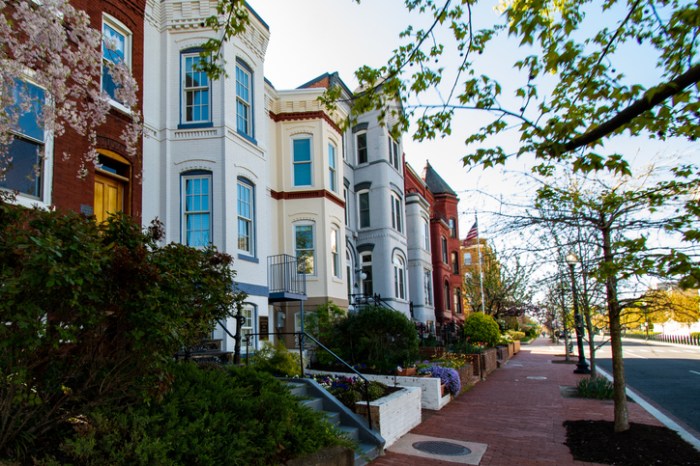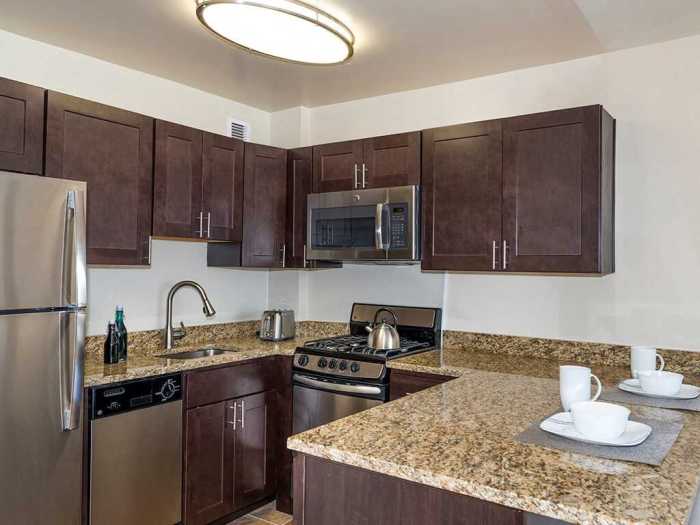House for Rent in DC Your Guide
Neighborhood Analysis in Washington, D.C.: House For Rent In Dc
House for rent in dc – Choosing the right neighborhood is crucial when renting in Washington, D.C., given the city’s diverse and dynamic character. Rental prices vary significantly across different areas, influenced by factors such as proximity to employment centers, amenities, and overall desirability. Understanding these variations is key to finding a suitable and affordable rental property.
Average Rental Prices Across DC Neighborhoods
Rental costs in Washington, D.C., range considerably. Areas like Georgetown and Northwest DC command significantly higher prices due to their prestigious locations, proximity to major employers, and upscale amenities. Conversely, neighborhoods further from the city center, such as parts of Southeast or Northeast DC, often offer more affordable rental options. While precise figures fluctuate based on market conditions and property specifics, data from reputable real estate websites consistently reveal this price disparity.
For instance, a 2-bedroom apartment in Georgetown might average $3,500 per month, while a similar unit in a neighborhood like Capitol Hill could range from $2,000 to $2,800.
Three Neighborhoods Ideal for Young Professionals
Three neighborhoods particularly well-suited for young professionals are Capitol Hill, Dupont Circle, and Adams Morgan. Each offers unique advantages in terms of amenities, proximity to workplaces, and overall lifestyle.
- Capitol Hill: Known for its historic charm, vibrant atmosphere, and proximity to the U.S. Capitol Building and numerous government agencies, making it attractive to those working in government or related fields. The area boasts a variety of restaurants, bars, and shops, as well as excellent transportation links.
- Dupont Circle: A sophisticated and cosmopolitan neighborhood, Dupont Circle is known for its upscale restaurants, vibrant nightlife, and proximity to numerous embassies and international organizations. Its central location provides easy access to various parts of the city.
- Adams Morgan: A lively and diverse neighborhood, Adams Morgan is famous for its eclectic mix of restaurants, bars, and shops, catering to a wide range of tastes. It offers a more bohemian atmosphere compared to the other two, attracting those seeking a vibrant and culturally rich environment.
Transportation Options in Chosen Neighborhoods
All three neighborhoods offer convenient transportation options, contributing to their appeal for young professionals.
- Capitol Hill: Excellent Metro access (various lines), numerous bus routes, and reasonably bikeable streets.
- Dupont Circle: Excellent Metro access (multiple lines), extensive bus network, and a relatively walkable and bikeable area.
- Adams Morgan: Good Metro access (one line), decent bus service, and a moderate level of walkability and bikeability.
Neighborhood Comparison Table
| Neighborhood | Average Rent (2-bedroom) | Average Commute Time (to Downtown) | Safety Rating (relative) |
|---|---|---|---|
| Capitol Hill | $2,200 – $2,800 | 15-30 minutes | High |
| Dupont Circle | $2,800 – $3,500 | 10-20 minutes | High |
| Adams Morgan | $2,000 – $2,500 | 20-30 minutes | Medium-High |
Rental Property Features in Washington, D.C.
Understanding common features and lease terms is vital when searching for a rental property in D.C. The availability of amenities and lease conditions can significantly impact your overall rental experience and budget.
Common Features in DC Rental Properties

Source: buttercms.com
Many rental properties in DC offer a range of features, although availability and cost vary widely depending on location and property type. In-unit laundry is increasingly common, especially in newer buildings or renovated units. Parking, however, can be a significant premium, often costing extra per month. Pet policies also vary greatly; some landlords are pet-friendly, while others impose restrictions or additional fees.
Examples of Property Listings
- Capitol Hill (2-bedroom townhouse): $3,000/month, in-unit laundry, off-street parking, pet-friendly (with fee).
- Dupont Circle (1-bedroom apartment): $2,500/month, in-unit laundry, no parking, no pets allowed.
- Adams Morgan (studio apartment): $1,800/month, shared laundry, no parking, pets allowed (with fee).
House vs. Apartment: Benefits and Drawbacks
Renting a house versus an apartment in DC presents distinct advantages and disadvantages. Houses generally offer more space and privacy, but often require more maintenance and may lack the amenities found in apartment complexes (e.g., gyms, pools). Apartments typically provide more convenience and on-site amenities but may have less privacy and space.
Typical Lease Terms and Conditions
DC rental agreements usually cover a 12-month lease term. Common clauses include security deposit requirements (typically one to two months’ rent), late payment fees, pet policies, and provisions regarding property damage. It’s crucial to carefully review the lease agreement before signing.
Finding Rental Listings in Washington, D.C.
Navigating the DC rental market requires a strategic approach. Utilizing multiple platforms, crafting a strong application, and recognizing potential red flags are essential for a successful search.
Online Platforms for Finding Rentals
Three popular online platforms for finding rental properties in DC are Apartments.com, Zillow, and Trulia. These websites offer extensive listings, search filters, and user reviews, helping renters narrow their search based on specific criteria.
Creating a Compelling Rental Application
A strong rental application significantly increases your chances of approval. Ensure all information is accurate and complete, including employment history, income verification, and references. A well-written cover letter highlighting your responsible tenancy history can also be beneficial.
Potential Red Flags When Searching Online
Be wary of listings with vague descriptions, unusually low prices, or requests for payment before viewing the property. Always verify the legitimacy of the landlord or property management company before engaging in any financial transactions.
Step-by-Step Guide for Navigating the DC Rental Market, House for rent in dc

Source: tripadvisor.com
- Define your budget and desired features.
- Research neighborhoods and identify potential areas.
- Utilize online platforms to search for listings.
- Schedule viewings and thoroughly inspect properties.
- Submit a complete and accurate rental application.
- Negotiate lease terms and conditions.
- Sign the lease agreement and pay required fees.
Financial Considerations for Renting in DC
Renting in DC involves various costs beyond the monthly rent. Understanding these expenses and budgeting effectively are crucial for responsible financial planning.
Typical Costs Associated with Renting
In addition to monthly rent, expect costs such as a security deposit (usually one to two months’ rent), application fees (ranging from $25 to $75), and utilities (electricity, gas, water, internet). Parking fees, if applicable, can also add to your monthly expenses.
Importance of a Good Credit Score
Landlords often check credit scores to assess the financial responsibility of potential tenants. A good credit score significantly improves your chances of approval and may influence the terms of your lease agreement.
Budgeting Strategies for DC Renters
Budgeting strategies vary depending on income. Use budgeting apps or spreadsheets to track income and expenses. Prioritize essential costs and identify areas where you can reduce spending. Consider creating a contingency fund for unexpected repairs or expenses.
Calculating Total Monthly Rental Cost
To calculate your total monthly cost, add the monthly rent, utilities, parking fees (if applicable), and any other recurring expenses. For example, a $2,500/month rent, $200 utilities, and $150 parking would result in a total monthly cost of $2,850.
Visual Representation of Rental Data
Visualizing rental data provides valuable insights into market trends and property values. A chart or graph can effectively illustrate the relationship between rental price and property size.
Correlation Between Rental Price and Property Size
A scatter plot would effectively show the correlation between rental price and square footage. Data points would represent individual properties, with the x-axis representing square footage and the y-axis representing monthly rent. A positive correlation would be expected, indicating that larger properties generally command higher rents. The data source would be compiled from various online real estate listings, ensuring a representative sample across different neighborhoods and property types.
Statistical analysis could determine the strength and significance of the correlation.
Descriptive Image of a Typical DC Rental House

Source: zumpercdn.com
Imagine a charming, two-story brick row house typical of many DC neighborhoods. The house features a small front porch, neatly manicured landscaping, and classic architectural details. Inside, the property boasts hardwood floors, high ceilings, updated kitchen appliances, and ample natural light. These features, along with a convenient location, are highly valued by renters.
Key Elements to Consider When Reviewing Rental Property Photographs
- Overall condition and cleanliness of the property.
- Size and layout of rooms.
- Condition of appliances and fixtures.
- Natural light and ventilation.
- Exterior features and landscaping.
Quick FAQs
What is the average security deposit in DC?
Security deposits in DC typically range from one to two months’ rent, depending on the property and landlord.
How long does the rental application process usually take?
The application process can vary, but generally takes between one to three weeks.
What utilities are typically the tenant’s responsibility?
Tenants usually pay for electricity, gas, water, and internet/cable. Check the lease for specifics.
What are some common lease terms in DC?
Common lease terms in DC are 12 months, although shorter-term leases may be available at a higher cost.
Are pets allowed in most DC rentals?
Pet policies vary widely. Some properties allow pets with additional fees and restrictions, while others have strict “no pets” policies.




















